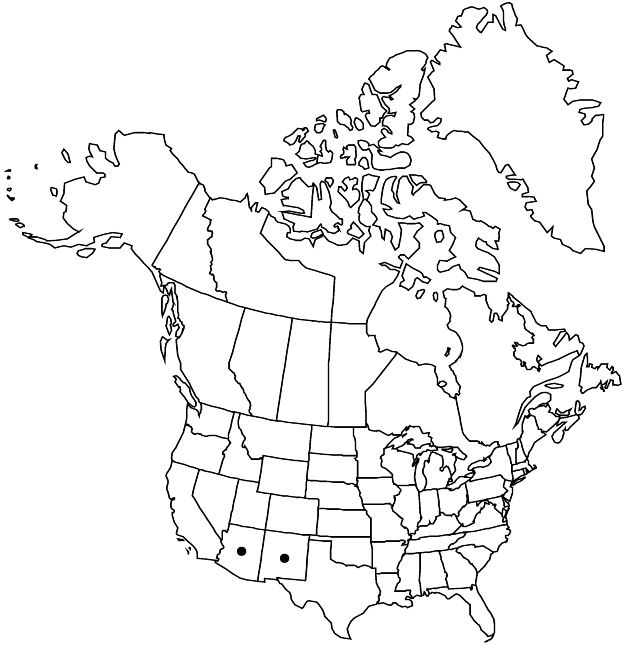Difference between revisions of "Sphaeralcea incana"
Mem. Amer. Acad. Arts, n. s. 4: 23. 1849.
FNA>Volume Importer |
FNA>Volume Importer |
||
| Line 12: | Line 12: | ||
|name=Sphaeralcea incana subsp. cuneata | |name=Sphaeralcea incana subsp. cuneata | ||
|authority=Kearney | |authority=Kearney | ||
| − | }}{{Treatment/ID/Synonym | + | }} {{Treatment/ID/Synonym |
|name=S. incana var. cuneata | |name=S. incana var. cuneata | ||
|authority=(Kearney) Kearney | |authority=(Kearney) Kearney | ||
| Line 30: | Line 30: | ||
|elevation=1000–1900 m | |elevation=1000–1900 m | ||
|distribution=Ariz.;N.Mex.;Mexico (Chihuahua;Coahuila;Sonora). | |distribution=Ariz.;N.Mex.;Mexico (Chihuahua;Coahuila;Sonora). | ||
| − | |discussion=<p>Sphaeralcea incana is often seen in relatively small groups. Fresh stems tend to be very rubbery and flower buds notably rounded.</p> | + | |discussion=<p><i>Sphaeralcea incana</i> is often seen in relatively small groups. Fresh stems tend to be very rubbery and flower buds notably rounded.</p> |
|tables= | |tables= | ||
|references= | |references= | ||
| Line 54: | Line 54: | ||
|publication year=1849 | |publication year=1849 | ||
|special status= | |special status= | ||
| − | |source xml=https://jpend@bitbucket.org/aafc-mbb/fna-data-curation.git/src/ | + | |source xml=https://jpend@bitbucket.org/aafc-mbb/fna-data-curation.git/src/8f726806613d60c220dc4493de13607dd3150896/coarse_grained_fna_xml/V6/V6_670.xml |
|subfamily=Malvaceae subfam. Malvoideae | |subfamily=Malvaceae subfam. Malvoideae | ||
|genus=Sphaeralcea | |genus=Sphaeralcea | ||
Revision as of 17:49, 18 September 2019
Plants perennial. Stems 3–5(–7), erect, yellow to yellow-green, (4–)6–18(–30) dm, rubbery when fresh, sometimes appearing slightly ridged or fasciated when dry, densely canescent. Leaf blades light green to yellow-green, deltate or elongate-deltate, unlobed or weakly 3-lobed, center lobe sometimes elongate, lobes relatively broad, 3–5(–7) cm, not rugose, rubbery, base cuneate or truncate to cordate, margins entire or crenulate to undulate, surfaces stellate-pubescent. Inflorescences paniculate, crowded, flowers long-interrupted, tip not leafy; involucellar bractlets green to tan. Flowers: sepals 3.5–6.5 mm, spheric in bud; petals red-orange to pale red, 10–17 mm; anthers yellow. Schizocarps hemispheric; mericarps 11–15, 4–5.5 × 2–2.5 mm, chartaceous, nonreticulate dehiscent part 60–75% of height, tip reflexed, indehiscent part not wider than dehiscent part, sides faintly to prominently and finely reticulate with thin-translucent areolae. Seeds 2 per mericarp, brown, glabrous or pubescent. 2n = 10, 20.
Phenology: Flowering summer.
Habitat: Sandy areas
Elevation: 1000–1900 m
Distribution

Ariz., N.Mex., Mexico (Chihuahua, Coahuila, Sonora).
Discussion
Sphaeralcea incana is often seen in relatively small groups. Fresh stems tend to be very rubbery and flower buds notably rounded.
Selected References
None.